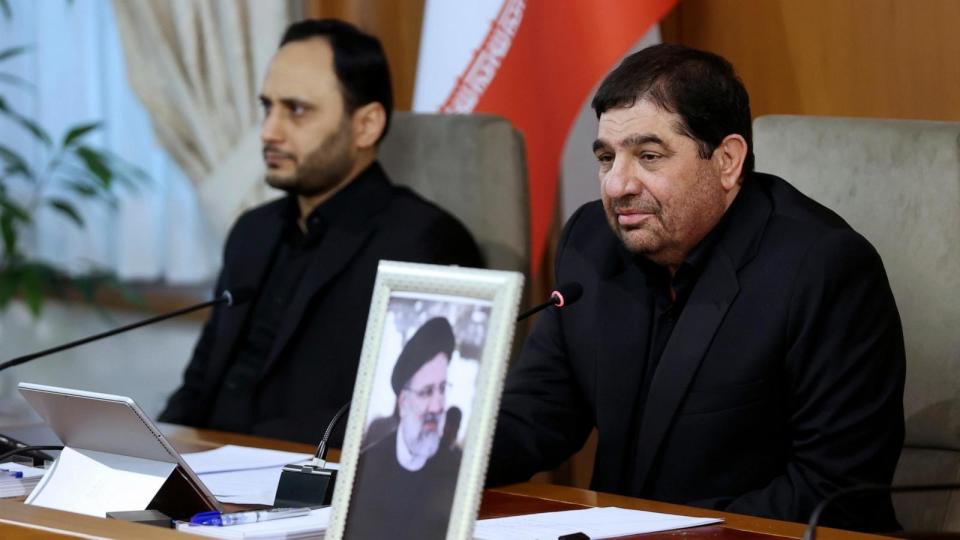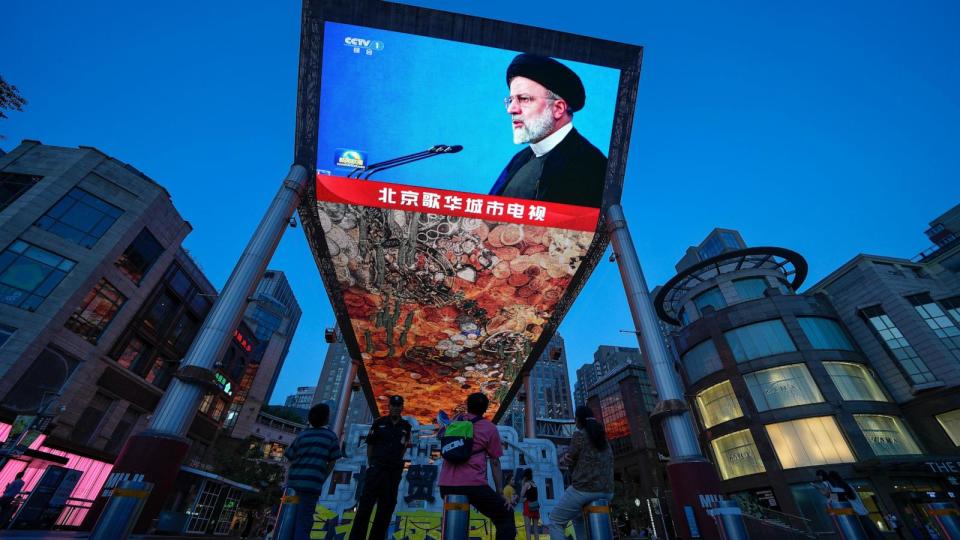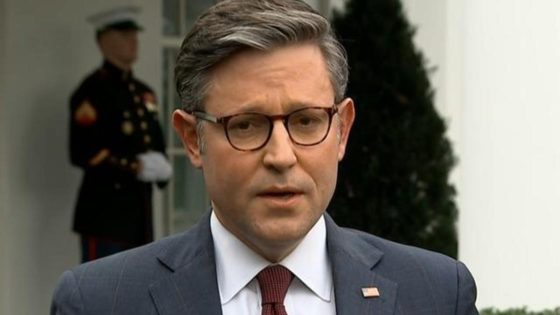Iranian President Ebrahim Raisi, Foreign Minister Hossein Amirabdollahian, and other officials died in a helicopter crash Sunday near Iran’s northern border with Azerbaijan, Iranian state media said Monday morning.
The helicopter was part of a convoy of three helicopters returning from an event inaugurating a joint dam project when it crashed in heavy fog in a remote area on Sunday. The fog and rugged terrain hindered search operations. All eight bodies on board were found on Monday.
Raisi’s death comes during heightened international tensions and increased speculation over who will eventually replace Iran’s Supreme Leader Ayatollah Ali Khamenei. Raisi was widely considered a potential successor.

ABC contributor Col. Steve Ganyard, a former fighter pilot and a former State Department official, analyzed the crash – and the political repercussions inside Iran and elsewhere – Monday morning with “Start Here.”
START HERE: What do we know about this incident so far?
GANYARD: It seems to be a fairly classic mishap that occurs when helicopter pilots try to skirt underneath weather in very mountainous terrain. So we know that there was a lot of fog in the area. We know that they had dignitaries, very important people, which oftentimes puts an extra, at least mental burden on the pilots to make sure that they get to get to the destination. And when you’re flying in the mountains and you have very low visibility, there’s a natural tendency for helicopter pilots to begin to sort of descend and try to get lower and try to get underneath either the fog or the cloud layer. And they know that they can set the aircraft down if they need to. But oftentimes it leads to tragedy. If you remember, earlier this year, back in February, a marine Corps helicopter was trying to do this very thing, trying to get back to San Diego and in the mountains above San Diego, just to the to the east of San Diego, crashed. And unfortunately, all the Marines on board lost their lives.
START HERE: So we’re looking at an area with dense forest, a lot of rain and fog. The Iranian government saying that they dispatched rescue teams. But we’re not getting a lot of information from them. Is that typical with the Iranian state government?


GANYARD: It is when you have when you have a mishap that involves very senior people. Obviously, this is the president of the country. He’s not the most important guy – Ayatollah Khamenei remains the most important person in terms of the leadership there in Iran. But this is still a very important, very public figure. He is in many ways the elected face of Iran to the rest of the world. And you had the foreign minister. So, interestingly, you had two of the people who are most responsible for the trouble that Iran has been causing in the region. They are, as we know, key supporters of the Houthis, key supporters of Hamas and key supporters of Hezbollah. And so, all of the region’s woes and all of the instability are at least directed in some way, influenced by two of the people that were on that helicopter.
START HERE: Well, and you were kind of alluding to this, the politics there, could this crash change the dynamic and how the U.S. views Tehran, or would you expect that Raisi’s hardline government is going to continue no matter what happens?
GANYARD: Well, Raisi is the most senior elected official in Iran, and his foreign ministers are very public foreign ministers. He is the face of the relations with the rest of the of the world, in particular the rest of the region. But it doesn’t really affect the politics within Iran. The ayatollahs still control all of the power within Iran. But none of the true power rests with the president. It still rests with the mullahs. It still rests with the Ayatollah Khamenei.
START HERE: Well, and I realize, Steve, there are a lot of unknown about what actually caused this crash. Weather obviously is looking to be the primary culprit. But there will be people wondering if Israel could have had a hand in this in any way. Is that something that’s even possible?
GANYARD: It’s possible. You never know. The Israelis have done some amazing operations inside Iran. But we also know that weather was a key problem here, and the fact that there were two other helicopters with the president’s helicopter who were able to land, but they lost sight of the president’s helicopter – it would suggest that it was probably weather related. But at this point, we’ll just have to wait and see. Obviously, the Iranians are never going to admit it if the Israelis did have a hand, and the Israelis probably in this case would not claim responsibility.
START HERE: And Senate Democratic Leader Chuck Schumer saying that U.S. intelligence right now, pointing to that Israel was not behind this. So I want to make that clear. Steve, thanks so much for joining us.
Expert provides insight into suspected cause of helicopter crash that killed Iran’s president originally appeared on abcnews.go.com
Source Agencies


